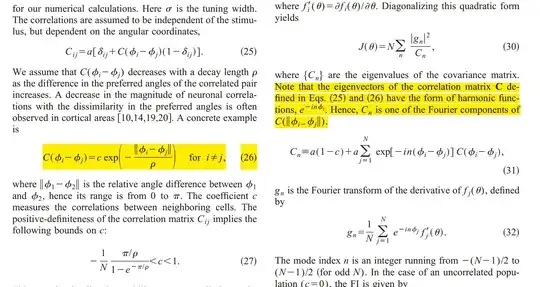How to prove Euler's Formula $e^{i\theta} = (cos\theta + isin\theta)$?
I know this is kind of basic and I am familiar with this equality for a long time. But, how do I prove it?
And another question: I have read that $ce^{-\frac{\phi_i-\phi_j}{\rho}}$ is a harmonic function of the form $e^{-in\phi_i}$, and therefore it's eigenvalues are one of the Fourier components of $(|\phi_i-\phi_j|)$.
My questions are:
- How come $ce^{-\frac{\phi_i-\phi_j}{\rho}}$ has the form of $e^{-in\phi_i}$ if it is a real function?
- How do I cacaulate the eigenvalues of such a function, or, if it is a difficult calculation, is there a known theorem(s) I can base this result on?
I am not an expert in harmonic analysis, but I would like to know more about this subject (without getting into too much details). I need it to my research in neurosciences.
Here is a link to the article I am reffering to: Population coding
Thank You!
